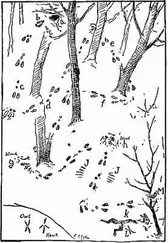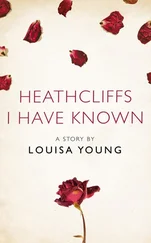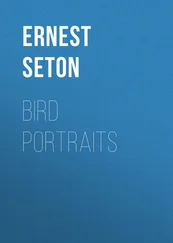Ernest Seton - Wild Animals I Have Known
Здесь есть возможность читать онлайн «Ernest Seton - Wild Animals I Have Known» весь текст электронной книги совершенно бесплатно (целиком полную версию без сокращений). В некоторых случаях можно слушать аудио, скачать через торрент в формате fb2 и присутствует краткое содержание. Год выпуска: 2001, Жанр: Природа и животные, на английском языке. Описание произведения, (предисловие) а так же отзывы посетителей доступны на портале библиотеки ЛибКат.
- Название:Wild Animals I Have Known
- Автор:
- Жанр:
- Год:2001
- ISBN:нет данных
- Рейтинг книги:5 / 5. Голосов: 1
-
Избранное:Добавить в избранное
- Отзывы:
-
Ваша оценка:
- 100
- 1
- 2
- 3
- 4
- 5
Wild Animals I Have Known: краткое содержание, описание и аннотация
Предлагаем к чтению аннотацию, описание, краткое содержание или предисловие (зависит от того, что написал сам автор книги «Wild Animals I Have Known»). Если вы не нашли необходимую информацию о книге — напишите в комментариях, мы постараемся отыскать её.
Wild Animals I Have Known — читать онлайн бесплатно полную книгу (весь текст) целиком
Ниже представлен текст книги, разбитый по страницам. Система сохранения места последней прочитанной страницы, позволяет с удобством читать онлайн бесплатно книгу «Wild Animals I Have Known», без необходимости каждый раз заново искать на чём Вы остановились. Поставьте закладку, и сможете в любой момент перейти на страницу, на которой закончили чтение.
Интервал:
Закладка:
He rarely shot on the wing, preferring to pot his birds, which was not easy to do when the leaves were on, and accounted for the brood in the third ravine going so long unharmed; but the near prospect of other gunners finding them now, had stirred him to go after 'a mess o' birds.' He had heard no roar of wings when the mother-bird led off her four survivors, so pocketed the two he had killed and returned to the shanty.
The little grouse thus learned that a dog is not a fox, and must be differently played; and an old lesson was yet more deeply graven—'Obedience is long life.'
The rest of September was passed in keeping quietly out of the way of gunners as well as some old enemies. They still roosted on the long thin branches of the hardwood trees among the thickest leaves, which protected them from foes in the air; the height saved them from foes on the ground, and left them nothing to fear but coons, whose slow, heavy tread on the timber boughs never failed to give them timely warning. But the leaves were falling now—every month its foes and its food. This was nut time, and it was owl time, too. Barred owls coming down from the north doubled or trebled the owl population. The nights were getting frosty and the coons less dangerous, so the mother changed the place of roosting to the thickest foliage of a hemlock-tree.
Only one of the brood disregarded the warning 'Kreet, kreet.' He stuck to his swinging elm-bough, now nearly naked, and a great yellow-eyed owl bore him off before morning.
Mother and three young ones now were left, but they were as big as she was; indeed one, the eldest, he of the chip, was bigger. Their ruffs had begun to show. Just the tips, to tell what they would be like when grown, and not a little proud they were of them.
The ruff is to the partridge what the train is to the peacock—his chief beauty and his pride. A hen's ruff is black with a slight green gloss. A cock's is much larger and blacker and is glossed with more vivid bottle-green. Once in a while a partridge is born of unusual size and vigor, whose ruff is not only larger, but by a peculiar kind of intensification is of a deep coppery red, iridescent with violet, green, and gold. Such a bird is sure to—be a wonder to all who know him, and the little one who had squatted on the chip, and had always done what he was told, developed before the Acorn Moon had changed, into all the glory of a gold and copper ruff—for this was Redruff, the famous partridge of the Don Valley.
IV
One day late in the Acorn Moon, that is, about mid-October, as the grouse family were basking with full crops near a great pine log on the sunlit edge of the beaver-meadow, they heard the far-away bang of a gun, and Redruff, acting on some impulse from within, leaped on the log, strutted up and down a couple of times, then, yielding to the elation of the bright, clear, bracing air, he whirred his wings in loud defiance. Then, giving fuller vent to this expression of vigor, just as a colt frisks to show how well he feels, he whirred yet more loudly, until, unwittingly, he found himself drumming, and tickled with the discovery of his new power, thumped the air again and again till he filled the near woods with the loud tattoo of the fully grown cock-partridge. His brother and sister heard and looked on with admiration and surprise, so did his mother, but from that time she began to be a little afraid of him.
In early November comes the moon of a weird foe. By a strange law of nature, not wholly without parallel among mankind, all partridges go crazy in the November moon of their first year. They become possessed of a mad hankering to get away somewhere,' it does not matter much where. And the wisest of them do all sorts of foolish things at this period. They go drifting, perhaps, at speed over the country by night and are cut in two by wires, or dash into lighthouses, or locomotive headlights. Daylight finds them in all sorts of absurd places, in buildings, in open marshes, perched on telephone wires in a great city, or even on board of coasting vessels. The craze seems to be a relic of a bygone habit of migration, and it has at least one good effect, it breaks up the families and prevents the constant intermarrying, which would surely be fatal to their race. It always takes the young badly their first year, and they may have it again the second fall, for it is very catching; but in the third season it is practically unknown.
Redruff's mother knew it was coming as soon as she saw the frost grapes blackening, and the maples shedding their crimson and gold. There was nothing to do but care for their health and keep them in the quietest part of the woods.
The first sign of it came when a flock of wild geese went honking southward overhead. The young ones had never before seen such long-necked hawks, and were afraid of them. But seeing that their mother had no fear, they took courage, and watched them with intense interest. Was it the wild, clanging cry that moved them, or was it solely the inner prompting then come to the surface? A strange longing to follow took possession of each of the young ones. They watched those arrowy trumpeters fading away to the south, and sought out higher perches to watch them farther yet, and from that time things were no more the same. The November Moon was waxing, and when it was full, the November madness came.
The least vigorous of the flock were most affected. The little family was scattered. Redruff himself flew on several long erratic night journeys. The impulse took him southward, but there lay the boundless stretch of Lake Ontario, so he turned again, and the waning of the Mad Moon found him once more in the Mud Creek Glen, but absolutely alone.
V
Food grew scarce as winter wore on. Redruff clung to the old ravine and the piney sides of Taylor's Hill, but every month brought its food and its foes. The Mad Moon brought madness, solitude, and grapes; the Snow Moon came with rosehips; and the Stormy Moon brought browse of birch and silver storms that sheathed the woods in ice, and made it hard to keep one's perch while pulling off the frozen buds. Redruff's beak grew terribly worn with the work, so that even when closed there was still an opening through behind the hook. But nature had prepared him for the slippery footing; his toes, so slim and trim in September, had sprouted rows of sharp, horny points, and these grew with the growing cold, till the first snow had found him fully equipped with snow-shoes and icecreepers. The cold weather had driven away most of the hawks and owls, and made it impossible for his four-footed enemies to approach unseen, so that things were nearly balanced.
His flight in search of food had daily led him farther on, till he had discovered and explored the Rosedale Creek, with its banks of silver-birch, and Castle Frank, with its grapes and rowan berries, as well as Chester woods, where amelanchier and Virginia-creeper swung their fruit-bunches, and checkerberries glowed beneath the snow.
He soon found out that for some strange reason men with guns did not go within the high fence of Castle Frank. So among these scenes he lived his life, learning new places, new foods, and grew wiser and more beautiful every day.
He was quite alone so far as kindred were concerned, but that scarcely seemed a hardship. Wherever he went he could see the jolly chickadees scrambling merrily about, and he remembered the time when they had seemed such big, important creatures. They were the most absurdly cheerful things in the woods. Before the autumn was fairly over they had begun to sing their famous refrain, 'Spring Soon,' and kept it up with good heart more or less all through the winter's direst storms, till at length the waning of the Hunger Moon, our February, seemed really to lend some point to the ditty, and they redoubled their optimistic announcement to the world in an 'I-told-you-so' mood. Soon good support was found, for the sun gained strength and melted the snow from the southern slope of Castle Frank Hill, and exposed great banks of fragrant wintergreen, whose berries were a bounteous feast for Redruff, and, ending the hard work of pulling frozen browse, gave his bill the needed chance to grow into its proper shape again. Very soon the first bluebird came flying over and warbled as he flew 'The spring is coming.' The sun kept gaining, and early one day in the dark of the Wakening Moon of March there was a loud 'Caw, caw,' and old Silver-spot, the king-crow, came swinging along from the south at the head of his troops and officially announced,
Читать дальшеИнтервал:
Закладка:
Похожие книги на «Wild Animals I Have Known»
Представляем Вашему вниманию похожие книги на «Wild Animals I Have Known» списком для выбора. Мы отобрали схожую по названию и смыслу литературу в надежде предоставить читателям больше вариантов отыскать новые, интересные, ещё непрочитанные произведения.
Обсуждение, отзывы о книге «Wild Animals I Have Known» и просто собственные мнения читателей. Оставьте ваши комментарии, напишите, что Вы думаете о произведении, его смысле или главных героях. Укажите что конкретно понравилось, а что нет, и почему Вы так считаете.





